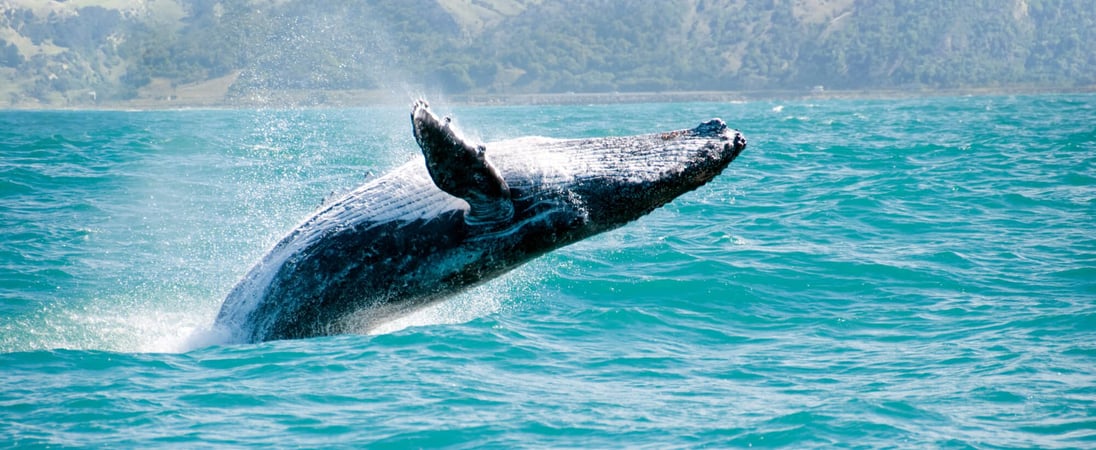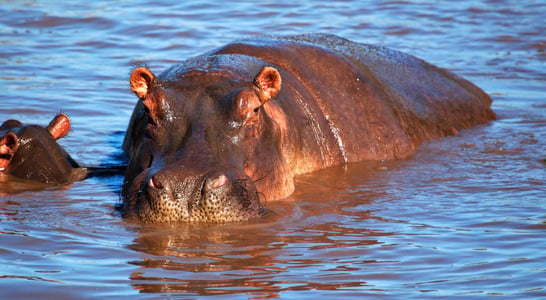
World Whale Day
Gigantic creatures that sing, dance, and swim in the vast blue sea, whales are majestic beings that fill our hearts with wonder and awe.
Giants of the ocean are celebrated on World Whale Day, which aims to raise awareness of these magnificent creatures, their beauty as well as their ecological value to the planet.
History of World Whale Day
The annual day, World Whale Day, was founded in Maui, Hawaii in 1980 to honor humpback whales, which swim off of the coast of this tropical island. This day was started as an idea by Greg Kauffman, founder of the Pacific Whale Foundation, to raise awareness about the threat of extinction faced by humpback whales.
These delightful creatures have become the main showcase of the Maui Whale Festival. Every year, crowds flock to the island to join in the free all-day event, organized by the Pacific Whale Foundation. The fun starts with a parade including floats, costumed characters and children’s events, plus music from Hawaiian and international stars.
But Whale Day isn’t just about those humpbacks who are in Hawaii. Whales inhabit all of the earth’s oceans and, sadly, the oceans are not as healthy today as they once were. What used to be a lovely place for our whale friends to live has become polluted by toxic materials such as chemicals, oil spills, plastic litter and industrial waste that is a threat to the whale populations of today and the future.
Paying heed to the biggest animals on the planet is what World Whale Day is all about. So get ready to celebrate World Whale Day!
World Whale Day Timeline
16th Century
Whale hunting begins as an industry
Whales had always been hunted on a small scale for their meat, blubber and oil, but during this time the industry expands and begins using explosives in a cruel manner.[1]
1966
Whaling is regulated
Due to commercial whaling practices in the 16th-20th centuries, it becomes clear in the late 1960s that certain species of whales are becoming threatened. Many governments begins to take note and respond and the International Convention for the Regulation of Whaling begins to take action.[2]
1970
Blue Whales become endangered
Even though they are protected, blue whales still see a decline and are declared officially endangered through the Endangered Species Conservation Act, which is the predecessor to the Endangered Species Act (ESCA).[3]
1971
‘Save the Whales’ is Founded
This campaign highlights the plight of whales on a large scale and a variety of organizations begin joining in with the cause, including the Sierra Club, National Wildlife Federation, World Wildlife Fund and many others.[4]
1980
First World Whale Day is Celebrated
With the intention of promoting and raising awareness for humpback whales, the inaugural World Whale Day is originally observed in Maui, Hawaii and started by Greg Kauffman who was also the founder of Pacific Whale Foundation.[5]
How to Celebrate World Whale Day
While the whale festival does take place in Hawaii, it is not necessary to visit Maui to mark this special day. Try out some of these ideas for paying homage to and celebrating whales on this day:
Learn More About Whales
Education is vital when it comes to raising awareness of the plight of whales and the benefits they have to the planet’s entire ecosystem. Here are some interesting facts about whales that can help get things started for an adventure into learning more about whales:
- Humpback Whales only eat for a small part of the year. Their fat stores keep them healthy for around 6-7 months while they are in the process of migrating to the Antarctic from their tropical areas of breeding.
- Whales have two categories: toothed whales and baleen whales. Instead of teeth, baleen whales have fibrous plates in their mouths that help them to filter out sea items such as plankton, krill and crustaceans. Toothed whales can feed on larger prey such as squid or fish.
- Whales are extremely intelligent and are believed to experience a variety of feelings, similar to those of humans.
- Many different species of whales communicate with each other by using sounds and even songs within their communities.
Join World Whale Day Events
All throughout the week (and even the whole month) of World Whale Day, various events and activities are taking place that are organized in support of whales and the awareness of their needs. The calendar changes each year, but some of the activities in the past have included a Run/Walk for the Whales, Whale World Film Festival, the Great Whale Count, a Parade of Whales, and many other inspiring aquatic-themed activities and celebrations. Some activities can also join in online!
Visit a Local Aquarium
While most aquariums aren’t large enough to house most species of whales (and the practice of keeping them in captivity is becoming questionable), getting connected with the world of those living under the sea can help to expand the mind toward what life is like for whales. The earth’s seas and oceans are filled with a vast number of marine life creatures that are often displayed at aquariums, including fish, sharks, sea otters, penguins, turtles, corals, stingrays, dolphins, jellies and more.
Some aquariums, such as the Shedd Aquarium in Chicago, Illinois, or Georgia Aquarium in Atlanta, do house Beluga Whales, which are one of the smallest species of whales in existence.
Help Preserve the Ocean
The earth’s oceans are the natural habitat for whales but, over recent decades, the oceans have become at risk due to various factors including climate change and pollution. As climate change alters the temperature of sea waters, this changes the ability of the whales’ food sources (including plants and animals) to grow and provide for them.
In recent years, many whales such as blues and humpbacks have had to migrate much further in order to reach places where they can feed, leaving them with less time to actually forage and eat, which has already begun to negatively influence the reproductive rates of some species.
Beginning with some of these practices, it’s possible for each human on the planet to do their part to help preserve the oceans, which means preserving the home for whales. While it might seem like one person or family can’t do much, if everyone works at it a little bit, it all adds up.
- Conserve Water. The less water that is used in each household, the less excess runoff there will be into the oceans.
- Reduce Excess Waste. Cutting down on what is thrown into the trash will help to minimize the amount of waste that ends up in the oceans.
- Cut Out Pollutants. Using non-toxic chemicals and cutting down on transportation pollution (by biking or walking instead of driving) can make a big difference in ocean health.
- Shop Carefully. When purchasing seafood, choose varieties that have been sustainably sourced. Also, buy less products that are packaged in plastic, get a reusable straw (made from metal, bamboo or glass), always carry a reusable shopping bag, and buy recycled/recyclable products when possible.
Participate in a Fundraising Event for Whales
Whales need support from wildlife lovers everywhere to meet conservation threats such as loss of habitat and pollution, so a perfect way to celebrate the day would be to take part in a fundraising event wherever you live. You’ll have a whale of a time and aid a great cause!
World Whale Day FAQs
When is World Whale Day?
World Whale Day is celebrated on the third Sunday in February each year, so the exact date will change with the calendar.[1]
How is World Whale Day celebrated?
World Whale Day is observed with a variety of events and happenings all over the globe–and particularly in Maui where the day has its origins. Look for events like fun-raising walks or runs, film festivals, online education seminars, craft fairs and more.[2]
When did whales become endangered?
As whaling became industrialized in the 16th century and beyond, the populations of different whale varieties began to diminish. But it wasn’t until the 1960s that humans began to take note and be concerned about the dwindling populations. Many whale species were declared endangered in the 1960s and 1970s.[3]
Why was World Whale Day started?
The purpose of World Whale Day was to raise awareness of and support for the humpback whale at the Pacific Whale Foundation’s Maui Whale Festival in Hawaii in 1980. Since then, the day has grown beyond just humpbacks to other types of whales as well.[4]
How long do whales live?
Many types of whales have a lifespan that is similar to that of a human. Some blue whales can live to be 80-90 years old while orcas only live 10-45 years. Some bowhead whales have been known to live up to 200 years![5]
Also on ...
View all holidaysSingles Awareness Day
Enjoying the freedom to focus on personal goals, hobbies, and friendships without the compromise of a partner's preferences or schedule.
World Hippo Day
These adorable creatures spend their days splashing in the water, munching on grass, and wowing us with their powerful jaws!




